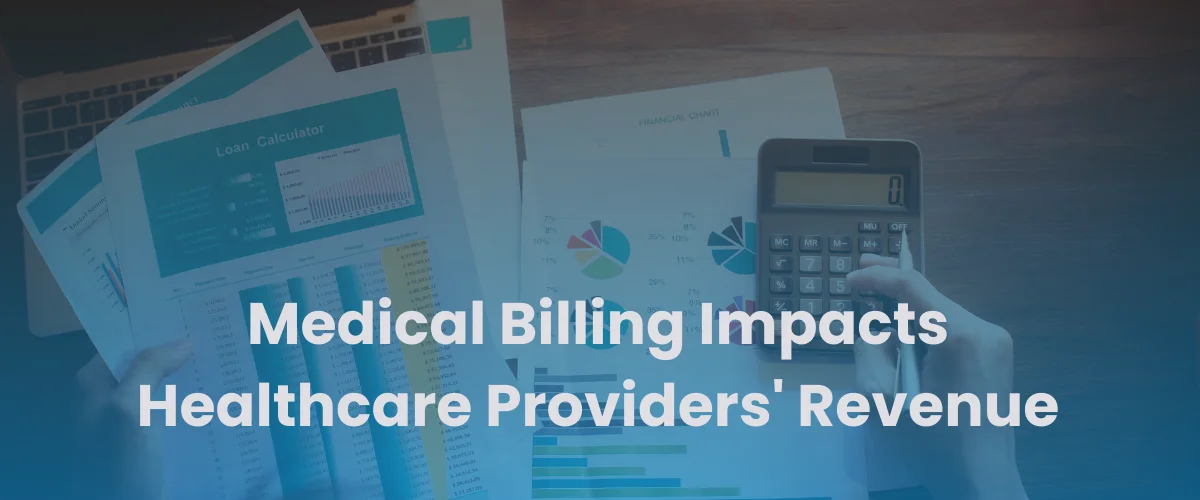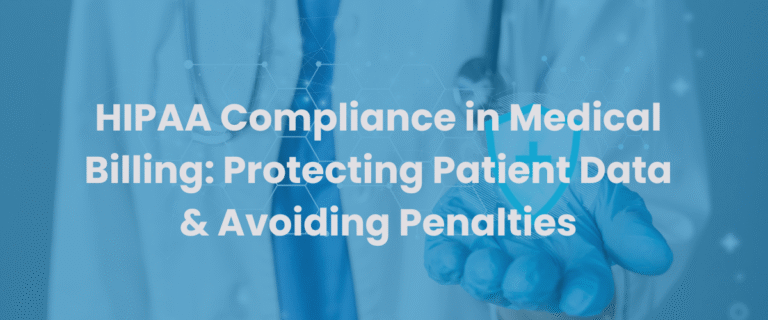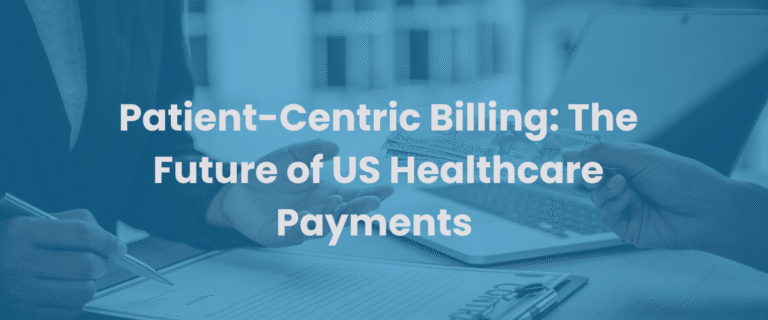Medical billing plays a crucial role in the financial health of healthcare providers. As the backbone of revenue cycle management, it ensures that healthcare facilities receive timely and accurate reimbursements for services rendered. Without a well-structured medical billing process, providers risk revenue leakage, compliance issues, and patient dissatisfaction, which can ultimately impact their sustainability and growth.
How medical billing, medical billing services, and medical billing and coding services directly influence revenue generation for healthcare providers and why an optimized process is essential in today’s healthcare landscape would be explored in detail.
What Is Medical Billing?
Medical billing is the process of translating healthcare services into claims submitted to insurance companies and patients for reimbursement. It involves several stages, including:
- Patient registration and insurance verification.
- Coding diagnoses and procedures according to standardized systems like ICD-10 and CPT.
- Submitting claims to insurance companies.
- Following up on denied or rejected claims.
- Collecting payments from patients.
Medical billing services streamline this process, ensuring accuracy, compliance, and faster revenue realization.
Key Ways Medical Billing Impacts Revenue
1. Accurate Claim Submission and Reduced Denials
One of the most significant contributors to revenue loss is denied or rejected claims. According to industry data, over 20% of medical claims are denied or rejected due to errors, such as incorrect coding or incomplete patient information.
- Impact on Revenue: Denied claims delay reimbursements and require additional resources for resubmission, increasing administrative costs.
- Solution: Professional medical billing and coding services reduce errors by ensuring accurate claim preparation and compliance with payer requirements.
By reducing denial rates, healthcare providers can secure revenue faster and minimize the administrative burden associated with claim corrections.
2. Optimized Revenue Cycle Management (RCM)
Medical billing is a critical component of Revenue Cycle Management (RCM), which encompasses the entire financial process from patient registration to payment collection. Efficient medical billing ensures that all aspects of RCM, including insurance verification, coding, claim submission, and payment posting, are executed seamlessly.
- Impact on Revenue: A streamlined RCM process reduces delays and improves cash flow, enabling providers to focus on delivering quality care rather than managing financial bottlenecks.
3. Compliance with Regulations
Healthcare providers must adhere to strict regulations, such as HIPAA and payer-specific guidelines, to avoid fines and legal issues. Medical billing and coding services ensure compliance by staying updated on regulatory changes and payer requirements.
- Impact on Revenue: Non-compliance can lead to audits, fines, and loss of payer contracts, directly affecting a provider’s revenue. Adhering to regulations protects revenue streams and builds trust with payers and patients.
4. Efficient Patient Payment Collection
In the era of high-deductible health plans, patient payments account for a growing share of healthcare revenue. Medical billing services play a vital role in managing patient billing, offering features like upfront cost estimates, flexible payment plans, and clear communication.
- Impact on Revenue: Patients are more likely to pay their bills when they understand the charges and have convenient payment options. Efficient billing reduces outstanding balances and improves cash flow.
The Role of AtMedBilling in Medical billing and Coding Services
Medical billing and coding are interdependent processes. Coding involves translating medical diagnoses and procedures into standardized codes, while billing uses these codes to prepare claims. Here’s how these services enhance revenue:
- Accurate Coding: Reduces claim denials by ensuring codes align with payer requirements.
- Timely Submission: Expedites reimbursement by avoiding delays in claim processing.
- Compliance Expertise: Protects revenue by adhering to regulatory guidelines.
Providers that outsource AtMedBilling often experience a significant improvement in revenue collection efficiency.
Common Challenges in Medical Billing and Their Revenue Impact
1. Coding Errors
Incorrect or incomplete coding is a leading cause of claim denials. Errors can occur due to complex coding systems, lack of training, or manual processes.
- Impact on Revenue: Denied claims delay payment and increase administrative costs for resubmission.
2. Lack of Follow-Up
Many providers fail to follow up on denied or unpaid claims, leading to lost revenue.
- Impact on Revenue: Unaddressed claims contribute to revenue leakage, especially for small practices with limited resources.
3. Patient Confusion
Unclear bills or unexpected charges frustrate patients and result in delayed payments or disputes.
- Impact on Revenue: Patient dissatisfaction affects collections and may harm the provider’s reputation.
4. Inadequate Technology
Manual billing processes are prone to errors and inefficiencies.
- Impact on Revenue: Slow processing and higher error rates reduce overall revenue realization.
Benefits of Outsourcing Medical Billing Services
Outsourcing medical billing to professional services can transform revenue cycles for healthcare providers. Key benefits include:
1. Increased Efficiency
Medical billing companies specialize in claim processing, reducing errors and ensuring faster reimbursement.
- Revenue Impact: Timely payments and reduced claim denials improve cash flow.
2. Cost Savings
Outsourcing eliminates the need for in-house billing staff, training, and technology investments.
- Revenue Impact: Lower overhead costs increase net revenue.
3. Advanced Technology
Billing services leverage cutting-edge technology, such as automation and analytics, to optimize RCM.
- Revenue Impact: Enhanced accuracy and efficiency result in higher collection rates.
4. Focus on Patient Care
With billing tasks handled externally, providers can focus on delivering quality care.
- Revenue Impact: Improved patient satisfaction and loyalty contribute to long-term financial stability.
How Medical Billing Enhances Financial Sustainability
A robust medical billing process not only improves revenue collection but also supports the financial sustainability of healthcare providers by:
- Reducing Administrative Burden: Automation and outsourcing free up resources for patient care.
- Improving Patient Relationships: Transparent and accurate billing enhances patient trust and satisfaction.
- Adapting to Changing Trends: Professional billing services stay updated on regulatory changes and payer policies, ensuring long-term compliance.
The Future of Medical Billing
Advancements in technology, such as Artificial Intelligence (AI) and Machine Learning (ML), are revolutionizing medical billing. Features like predictive analytics, real-time claim tracking, and chatbot-driven patient support are shaping the future of the industry.
Additionally, the shift toward value-based care emphasizes the need for accurate and efficient billing processes to measure and reward outcomes. Providers that invest in advanced medical billing services will be better equipped to navigate these changes and maximize their revenue potential.
Conclusion
Medical billing is a cornerstone of financial success for healthcare providers. By ensuring accurate claim submission, compliance with regulations, and efficient patient payment collection, medical billing services directly impact revenue and operational efficiency.
In today’s competitive healthcare landscape, providers must prioritize optimized billing processes to reduce revenue leakage, enhance patient satisfaction, and achieve long-term sustainability. Outsourcing medical billing and coding services is a strategic move that empowers providers to focus on what they do best, delivering exceptional care, while securing their financial future.




